MWPBA adopts audio judging after successful trial at St. Louis Games; large entry for Chicago
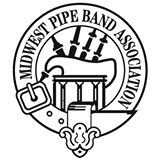 After a successful trial run at the St. Louis Highland Games, the Midwest Pipe Band Association has decided to use audio adjudication for the rest of its sanctioned pipe band competitions in 2024, taking advantage of Competition Suite cloud-based software and thus becoming the first pipe band association in history to fundamentally reinvent its judging process.
After a successful trial run at the St. Louis Highland Games, the Midwest Pipe Band Association has decided to use audio adjudication for the rest of its sanctioned pipe band competitions in 2024, taking advantage of Competition Suite cloud-based software and thus becoming the first pipe band association in history to fundamentally reinvent its judging process.
“We used audio adjudication in St. Louis with positive feedback from judges and bands,” MWPBA President Jim Sim said. “We will be using it again at the larger Alma Scottish Festival this weekend, and be using it for the entire 2024 season.”
Eight bands competed at St. Louis, and 20 bands are entered for Alma, which will be a one-day event for the first time in its history. Most bands will compete in two events on Saturday, May 25th.
While Pipe-Major John Haack of Grade 4 St. Louis Caledonian recognized that “there are a few kinks to work out,” he stressed that “it’s clearly a way forward. What more can you ask from an adjudicator when they can point out a phrase and outright sing it back to you? Side-by-side, in real time. It’s what they would do if they came to your band practice as an instructor.”
Audio judging has been used sporadically with cassette tape recorders over the years; the ever-open-minded MWPBA is the first pipe band association to adopt the method for all contests.
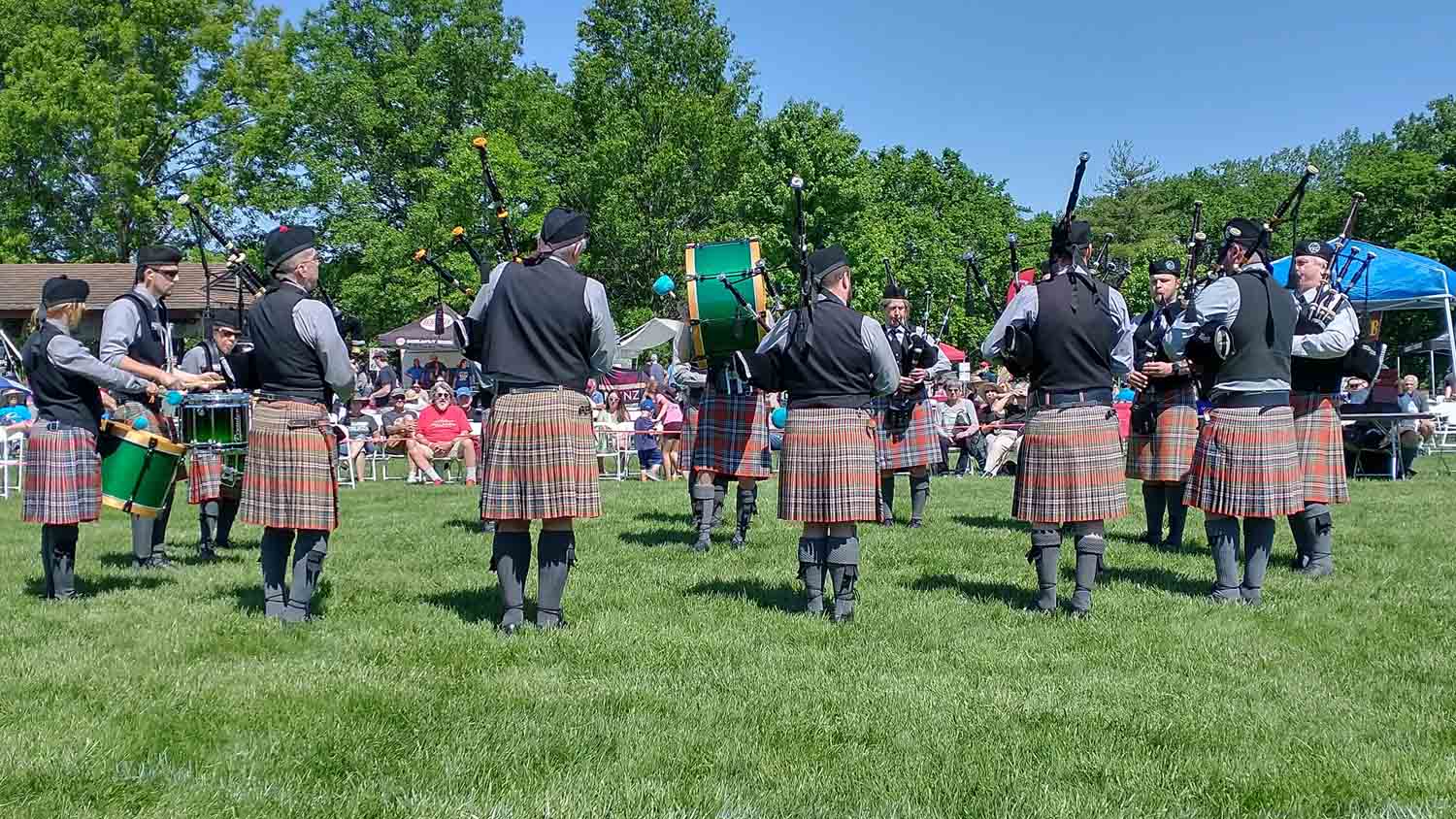
“The audio adjudication allows the adjudicators to make real-time comments heard by each band in the recordings over their playing performance,” Sim said. “We are using the same system as Drum Corps International. There is an added expense, but the bands benefit greatly from the system and it can really be used as an educational tool. It allows the adjudicators to freely speak and critique the performance in greater detail. In our first go around in St. Louis, we even had an adjudicator singing into the recording to help explain his comments. This system also alleviates the need for all of the score sheets and the adjudicators use just one master sheet per judge to submit to the scorekeeper making the process much more simple and less cumbersome. For instance, at Chicago, where we use eight judges per band, and if there are 12 bands in a grade, that’s 96 sheets the scorekeeper needs to go through. Now there are just eight.”
pipes|drums first drew attention to Drum Corps International’s use of Competition Suite software in our two-part interview with John Phillips, DCI’s Judging Administrator. DCI, whose competition format is similar to that of pipe bands, has been using the technology for several years with great success.
Judging is for the competitors first and foremost, so what did they think?
“It’s great for the adjudicators to isolate other not-quite-as-obvious passages or problems.” – St. Louis Caledonian P-M John Haack
“I think it will greatly open things up for adjudicators to be able to dig a little deeper,” Haack added. “I mean, we’re a Grade 4 band. I know our GDEs aren’t together and our strathspeys ‘need more pulse’, and that the opening of the reel is all over the map. But it’s great for the adjudicators to isolate other not-quite-as-obvious passages or problems. Some things that get lost in writing like ‘nice tag into the slow air’? It’s a lot easier to rewind that, listen in situ, and hear that they’re talking about the mid-corps giving a little bump on the first downbeat when the snares are silent. In writing? A lot harder to decipher something like that.”
What about the judges themselves? Mike Cusack, an adjudicator at the St. Louis Games, said: “I was a little skeptical at first, but I found it quite easy. My only uncertainty has to do with myself. It takes a while to write comments, but no time at all to speak them. So, I’m not sure if I gave fewer comments on the recording than I would have on a sheet.”
“I was very impressed with the adjudicators on the initial deployment,” Haack continued. “It’s one thing to critique a performance – we all do that whispering to each other from the sidelines. It’s another to do it when you know you’re being recorded. I worked in radio for years. Microphones can throw people. It’s very clear to me that the adjudicators on this inaugural run spent at least a few minutes sometime leading up to the day thinking about how they would do it. It’s very appreciated on our end.”
“I think the bands would be the first to say whether or not that felt it was an effective way to judge.” – Mike Cusack, judge at St. Louis Games
“I think the bands would be the first to say whether or not that felt it was an effective way to judge,” Cusack added. “I would also like feedback on what they thought about my comments. Were there too many (I doubt), too few (my concern), or just right? One thing I didn’t want to do is talk over the entirety of the performances. Since the bands, when listening to my comments, could hear what I heard, I figured a lot of the playing could speak for itself.”
“There’s still a need to keep somewhat detailed notes or tab sheet as an event evolves,” said Jon Quigg, the drumming judge at the St. Louis Games. “This was highlighted for me by having to determine best mid-section from an event that, though small, had several similar-leveled corps,” adding, “Not being able to review recordings gives a bit of a flying-blind feel to it. One pass and you’re done remained a little daunting on the day. Familiarity with the process should alleviate that over time.”
Quigg remarked that the weather at the St. Louis Games was “perfect,” and “for occasions when it’s not, a wide-brimmed hat may be in order to protect the headgear. I’m already thinking about how that’ll fit in my luggage. Also, a bad weather clipboard may become mandatory. I don’t pretend to know how juggling these things on the field would work. Regional associations would be advised to assemble tech support to pull the program together and provide on-going support – or training of games’ staff.”
The even larger two-day Chicago Highland Games, June 14-15, has an entry of about 45 bands, likely making it once again the largest pipe band competition in North America. All Grade 1-3 bands will compete in two events before eight judges, four piping, two drumming, and two ensemble.
In Grade 1, City of Dunedin and St. Thomas Alumni will make the trip, and seven Grade 2 bands – one more than in 2023 – are coming from “coast to coast,” according to Sim.
“It should be another great weekend of piping and drumming,” he said, adding, “six pipe band associations will be represented in the judging panel, including the RSPBA.”
What do you think? We welcome your thoughts via our Comments tool, which you can find below.
[This article was updated on May 21, 2024, with the addition of Jon Quigg’s comments.]


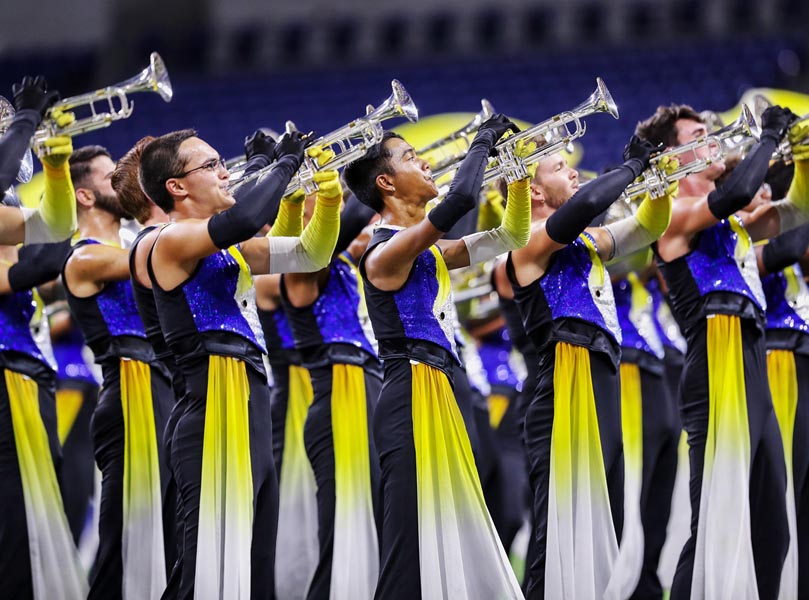
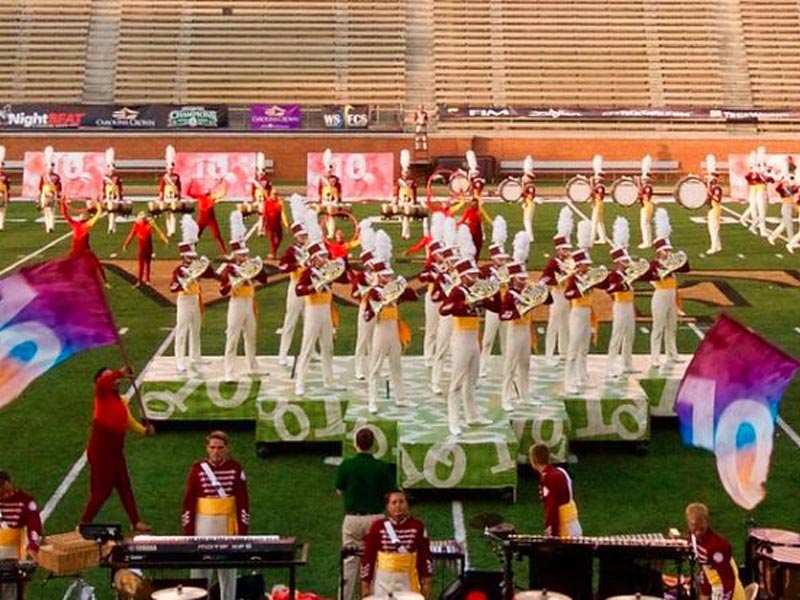
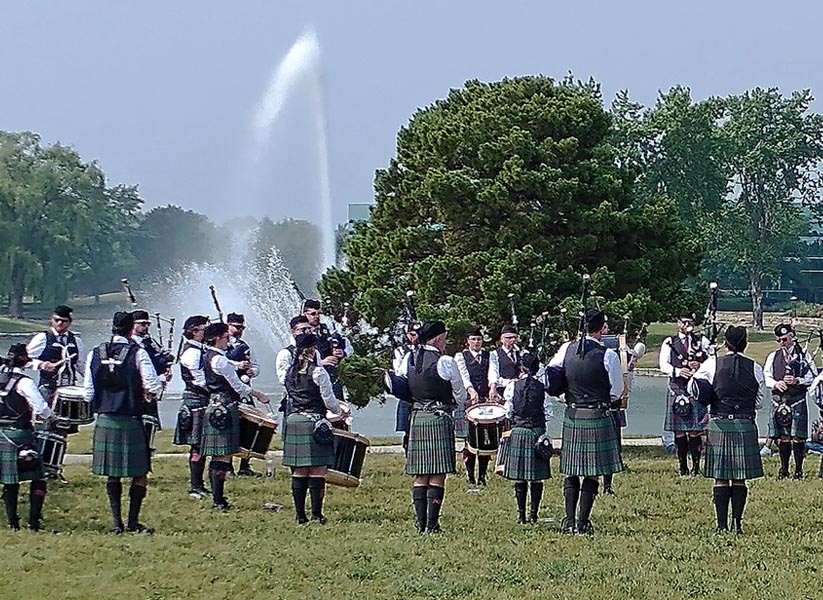
This is for sure a great decision. I have played in marching band and concert/orchestra ensembles, where audio adjudication was used, and it makes it sooooo much easier to understand the judges. I hope the EUSPBA adopts this…..